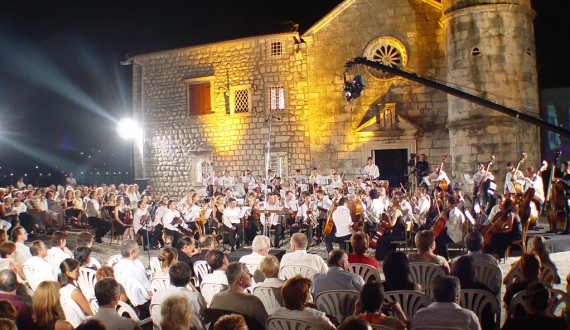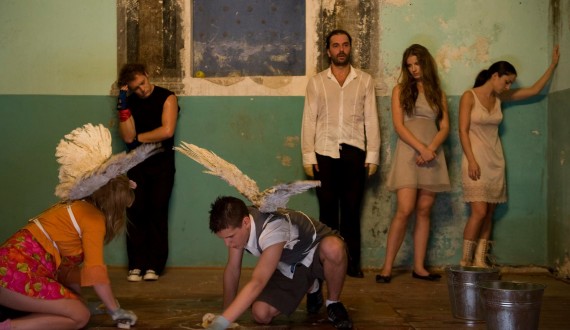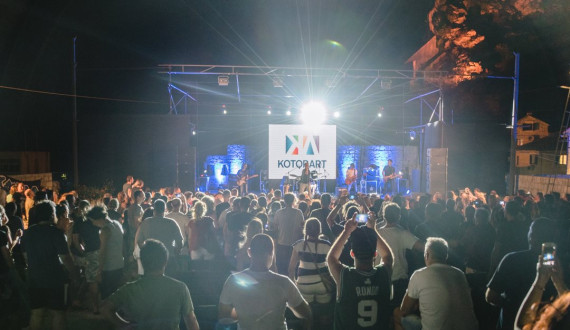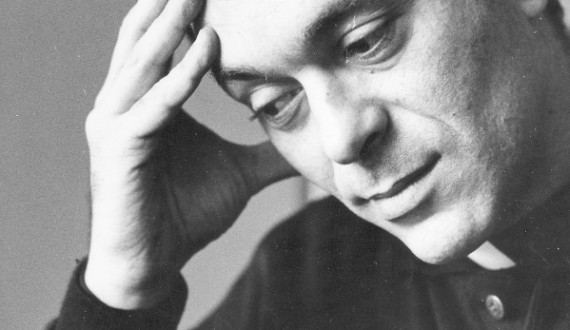
THE BEGINNING
KotorArt was founded in 2002 as an Independent Initiative in Culture, that was, as a festival of art music, open from the beginning to the idea of expanding its program.
The event was created as a high spot of the concert season which was initiated in September, 2001 at the Music School in Kotor by Don Branko Sbutega and pianist Ratimir Martinović. Don Branko Sbutega, an intellectual and visionary, immediately realized the importance and far-reaching effects of the idea, which he readily supported as one of the Festival founders and its honorary president.
During its first seven years of existence, KotorArt as a music festival built a national and international image of a first-class artistic event, which brought the European and world's musical elite in the Town and Montenegro.

ARTISTIC UMBRELLA
In 2009, under the auspices of the Ministry of Culture of Montenegro and the Municipality of Kotor, KotorArt in its present form was created. Created by merging major festivals in Kotor into one, the present KotorArt relied on the very name and reputation of the existing music festival, which, as a musical segment of the new KotorArt, has been named Don Branko's Music Days. In this way, some of the major summer events in Kotor were united, while preserving their autonomous events and using the existing name for the integrated multidisciplinary festival - KotorArt.
Both the individual festivals and the very idea of the KotorArt artistic umbrella, and especially the Town of Kotor and Montenegro, that is, their citizens, have had only benefits of such an action and all that it implies. This has been confirmed by the high quality and content of its programs realized since 2009, the role the Festival has in the development of cultural tourism in Kotor, as well as by a significant contribution to the international image of Kotor in terms of tourism development, giving quality cultural content and reinterpretation of cultural heritage.

Year after year, KotorArt was comprised of several diverse program segments, which are no longer part of the Festival. Program segments KotorAPSS, Kotor arTheater, Festival Teuta, Writing of Town and International Kotor Fashion Selection, contributed to the quality of the program and to the development of the festival's prestige.
Since the merging of Kotor festivals into a large multidisciplinary KotorArt in 2009, more than 1200 programs have been carried out, which have been seen by more than 250.000 spectators.

DON BRANKO SBUTEGA (1952 - 2006) visionary and founder of KotorArt, was an extremely knowledgeable and committed intellectual, who was known as such even outside the borders of the Bay and Montenegro, where he was born.
He is the author of numerous articles on history and culture of the Bay, co-author of books Old Literature of Boka (1994), Kurosawa's turmoil of the world and collection of poems Sebedarje, which was published posthumously. He was the spiritual leader of the Knights of Malta for Serbia and Montenegro. Don Branko Sbutega was born in Kotor, where he finished grammar school. He studied medicine and theology in Zagreb, Vienna and Rome. Don Branko was ordained to the priesthood in 1979, when he assumed responsibility for rebuilding churches, preservation and restoration of the great art treasures of the Diocese of Kotor, which were damaged in the earthquake. He was a benefactor and an inspiration for the paintings by famous artists, such as Vasko Lipovac, Vojo Stanić, Edo Murtić, Kosta Angeli Radovani and others. In the 1980s, when the Yugoslav crisis was evident, he was frequently present in the intellectual life, in public forums and television shows, in Croatia, Serbia and Montenegro. At the same time, he was responsible for the collection and distribution of humanitarian aid, the leadership of Caritas Diocese of Kotor and founding of the Center for Refugee Assistance in Padua (1996).
Don Branko was the first honorary president of KotorArt; he participated in numerous scientific meetings, conferences, round tables in the Balkans and Europe and was acquainted with numerous artists, diplomats, politicians and journalists.
Art is not a tool, it is a necessity. It is not less real than what we colloquially call reality. It is an alternative space and a great comforter, but also soothing evidence that the spirit cannot be reduced to the categories of space and time.
Don Branko Sbutega
